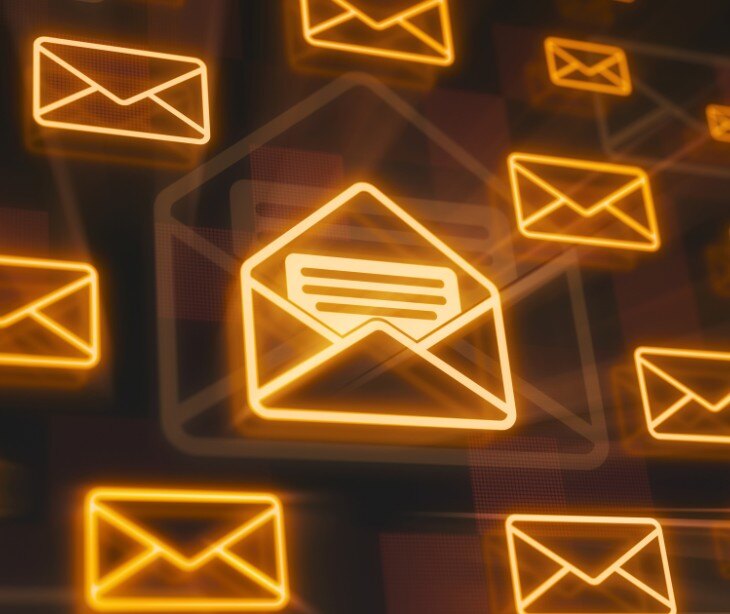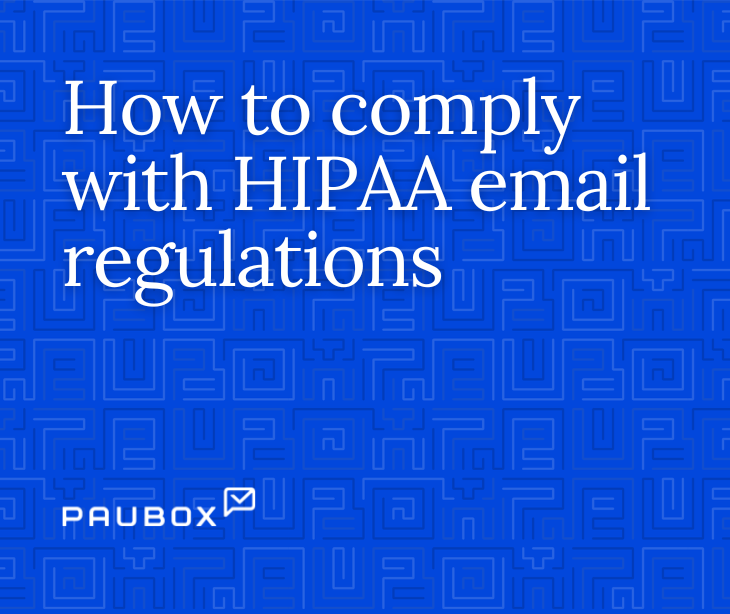
With email being the main communication tool in healthcare, providers must handle emails carefully to meet HIPAA standards. According to Credihealth, "Any message containing PHI must be encrypted before being sent over open networks like the Internet." However, meeting these standards involves more than encryption—it requires a structured approach that safeguards sensitive data throughout the communication process.
Below is a simple 3-step framework to help you implement secure email practices that protect patient privacy while improving operations.
Build a HIPAA-conscious culture
Creating a culture of HIPAA compliant email starts with thorough education and training for your team. Every staff member should understand the necessity of protecting patient information.
Set up strong password practices
Strong password policies are fundamental to email security. Encourage your team to use unique, complex passwords for all accounts to limit unauthorized access to sensitive information.
Control access to data
Access controls reduce the chances of unauthorized data sharing. Limit access to information based on job responsibilities.
Develop clear email policies
Create guidelines that define who can send patient information via email and under what conditions. These policies help prevent mistakes and protect patient privacy.
Obtain patient consent and inform staff of risks
Ensure your team understands the need to obtain patient consent before sending information via email.
Provide cybersecurity training
Train your team to recognize phishing attempts and other threats. A prepared team can act as the first line of defense, keeping patient information secure.
Watch: HIPAA compliance basics for small healthcare providers [VIDEO]
Securing data
In addition to training, technology is beneficial for safeguarding email data. The second step involves securing stored data on your email servers.
Select a HIPAA compliant email provider
Not all email services meet HIPAA requirements. Choose a provider that offers a business associate agreement (BAA) to protect emails and patient information.
Use strong encryption practices
HIPAA requires data to be protected during transmission. Your provider should offer full encryption for all messages, ensuring security from start to finish.
Monitor email activity
Implement a system to monitor email activity to detect potential issues and ensure the system remains secure.
Read more: Why should ePHI be encrypted at rest and in transit?
Use HIPAA compliant email solutions
The final step is to implement email solutions designed specifically for healthcare. These solutions help you maintain secure communication and improve efficiency.
Automatic encryption for all emails
Choose an email service that automatically encrypts all outgoing messages. Automatic encryption removes the need for staff to decide which emails to encrypt, thereby reducing mistakes.
Secure inbound communication
Your email solution should also protect your inbox from malicious content. Look for tools that verify incoming messages and block phishing attempts.
Improve patient experience
Your email service should offer a seamless experience for patients, allowing them to receive secure messages without additional logins or passwords.
Read also: Top 12 HIPAA compliant email services
The Paubox way
Paubox ensures HIPAA compliant email by providing seamless encryption for all outgoing emails, requiring no extra steps from users or recipients. With Paubox Email Suite, every email is automatically encrypted, integrating smoothly with existing platforms like G Suite and Office 365. Advanced security measures, including two-factor authentication and inbound threat protection, safeguard against scams, viruses, and phishing attacks. Paubox also offers business associate agreements (BAAs) with all paid plans, guaranteeing compliance with HIPAA regulations. By making secure email communication straightforward and hassle-free, Paubox effectively protects sensitive healthcare information while maintaining ease of use.
Learn more: HIPAA Compliant Email: The Definitive Guide
FAQs
What is HIPAA?
The Health Insurance Portability and Accountability Act (HIPAA) is a U.S. law that sets standards for protecting sensitive patient information from being disclosed without the patient’s consent or knowledge.
Why is HIPAA important?
HIPAA helps ensure that personal health information is kept confidential and secure, and it gives patients rights over their health data, including how it is used and shared.
Who must comply with HIPAA?
HIPAA applies to healthcare providers, health plans, and healthcare clearinghouses that handle protected health information (PHI). It also affects their business associates who perform services involving PHI.
What is HIPAA compliant email?
HIPAA compliant email refers to an email system that adheres to HIPAA regulations for protecting patient information. Services typically use encryption to secure emails and ensuring that email services have appropriate safeguards to prevent unauthorized access to sensitive health data.
Subscribe to Paubox Weekly
Every Friday we'll bring you the most important news from Paubox. Our aim is to make you smarter, faster.



